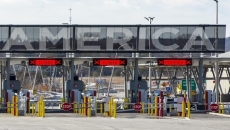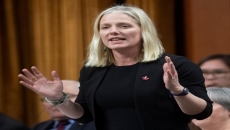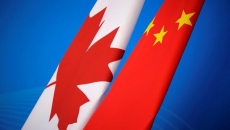The Victoria Day weekend has long been the unofficial kick-off to outdoor season in Canada.
But the COVID-19 pandemic has upended nearly every element of Canadian life, as physical distancing requirements forced the partial shutdown of the economy.
To illustrate just how widespread those disruptions are, here's a look at how pieces of a traditional Victoria Day weekend celebration — a backyard BBQ and a fireworks show — are being affected.
Burgers and dogs
Meat-processing plants have been hit hard by COVID-19 outbreaks, forcing them to close or scale back operations.
Cattle farmers warn potential shortages are real as the processing plants will all take time to get back to full capacity.
"Costco in Saskatoon did not have beef this week, and that is a real thing," Saskatchewan MP Randy Hoback told the House of Commons this week.
Meanwhile the farms are left with herds that need feeding, and the extra cost for that is expected to push beef prices even higher than they were already expected to rise this year.
The latest available data from Statistics Canada shows the price of a kilogram of ground beef went from $11.29 in March 2019 to $11.77 in March 2020.
The Canadian Pork Council said the prices its members received for their animals spiked as consumers stocked up in early March and are now in free-fall.
"Farmers now expect to lose between $30 and $50 per pig for every animal we sell in 2020 and the losses will likely continue into 2021," the council said.
It argues this will put pork farmers at risk of going under.
At minimum, rising costs for meat farmers are expected to hike your grocery bill.
Buns
Even the prime minister has acknowledged a sudden interest among Canadians in baking their own bread.
Flour and yeast makers are accustomed to seeing major demand around Christmas, not heading into summer.
But Statistics Canada reported this week that sales of flour in March were 200 per cent higher than in March 2019.
That's led to shortages on store shelves. Some restaurants, no longer baking their own bread products, have been selling off their stockpiles to customers; popular Ottawa coffee shop Bridgehead is selling an entire sourdough bread kit.
Fixings
It's crunch time now for Canada's fruit and vegetable farmers.
Compared with last year at this time, there's been a 14 per cent decrease in the number of temporary foreign workers who've arrived to help plant and harvest — 22,000 people had arrived by the end of April compared with about 25,500 by the end of the same month in 2019.
The majority of the jobs filled by those workers are on fruit and vegetable farms.
The labour shortage means some farmers are scaling back their expected production.
Farmers' markets, a staple of the summer circuit, often open for the season this weekend. Physical distancing has seen some pivot to curbside pickup only. While the supplies of fresh fruit and veg are solid now, cutbacks in the amount farmers can harvest this season and put in the ground for the next mean shortages are likely down the line.
Then there are the veggies and fruits being grown to get turned into something else, like tomatoes for ketchup.
Kraft Heinz, a leading ketchup-maker, saw a 2.2 per cent increase in overall sales in Canada in the first three months of 2020, which the company attributed partially to people stocking their pantries.
Another popular product? One that could also be eaten with ketchup (no judgment here): Kraft Dinner.
Potato salad
Storehouses of Canadian-grown potatoes are bursting. One estimate has suggested there are nearly 200 million pounds of french-fry potatoes in storage.
All the spuds are a product of last year's harvest, but the big companies that buy them to be turned into french fries are in turn seeing their purchase orders shrink. Chip trucks, fast-food joints and pubs and restaurants are either closed or offering just take-out, so people aren't buying.
Fry-makers aren't just not taking delivery of last year's crop. They'are also cutting back their orders for next year. Some potato farmers have said that raises the possibility of shortages, because it is impossible to predict what demand might be like in the future.
That's not to say people aren't eating any potatoes.
"Chip sales have been excellent, as consumer purchase their favourite 'comfort food' during these times," the United Potato Growers of Canada said in their April update.
Sales of table potatoes — the kind you might turn into potato salad — continue to be strong.
"Fresh demand was exceptional in the weeks leading up to isolation from COVID-19 as customers stocked up on good nutritional products expecting to be inside their homes for some time," they wrote.
Beer
Statistics from Beer Canada suggest domestic beer sales were down three per cent between February and March.
With no baseball games or outdoor festivals likely this summer, sales are expected to continue their slump, with far fewer consumers for a cold brew on a hot summer day. The Canadian Craft Brewers Association surveyed its members in April and found that 65 per cent of all brewery employees have been laid off, with prospects to bring them back uncertain.
Some brewers and distilleries, including major ones like Labatt, have pivoted to make hand sanitizer, using the alcohol they have on hand.
Propane
Much earlier in 2020, fears of a major regional propane shortage loomed, with rail blockades being thrown up by groups protesting oil pipeline construction slowing shipments to eastern Canada.
But the trains are rolling again, and Manitoba-based Tank Traders says its sales have increased by as much as 60 per cent in some provinces since the outbreak of COVID-19.
The company runs a propane-tank exchange program through kiosks in outlets including major grocer chains and corner stores.
It says the increase comes even as retailers that carry their products have seen a dramatic drop in traffic.
"We've had to boost our production levels and add additional delivery trucks and drivers," said Dale Johnston, the national sales manager.
Fireworks
China is among the world's leading fireworks producers and the supply chain was already fizzling before the pandemic. Factories were closed due to high temperatures, and then because of Chinese New Year. The outbreak of the novel coronavirus further complicated the issue.
Mark Phillips, the president of Mystical Distributing, a major fireworks company in Canada, says there is no question the supply chain has been affected. But the way orders are placed — sometimes as much as 18 months in advance — means his warehouses are full now.
That's the good side.
"What's bad is because consumers are staying home, sales aren't where they should be," he said, down about 50 per cent from what's normal this time of year.
Even as some regions are rolling back restrictions, bans on large gatherings remain in place.
So, for the Victoria Day weekend, many cities and towns in Canada have outright banned the sale of fireworks to discourage large groups coming together to watch them. Others are allowing people to set them off if only small groups are present.






